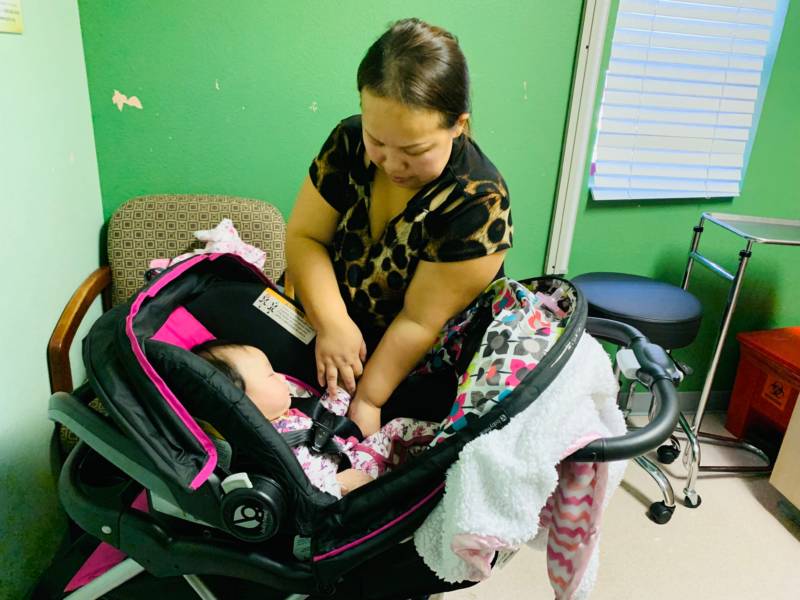Sandoval has many friends who are also young mothers. While she went regularly to see an OB/GYN during her pregnancy, she said none of her friends did.
“Maybe because they didn’t have time,” she said. And this is one of the biggest challenges Chin’s public health team faces, emphasizing the importance of prenatal care when women are struggling to get by.
“There’s a higher incidence for teen moms to have a pre-term birth,” Chin said.
Reaching full gestational age is important, she said, because when babies are born premature, the baby doesn’t have the full time to form in utero and it also affects their respiratory status. A pre-term baby is at higher risk for complications early in life because “they have immature neuro systems,” Chin said. “Things are still forming, it’s very difficult for them.”
But Chin’s team can’t get to every pregnant mom, which is one of the problems when the numbers of impoverished families is so high in one place. “We’re trying,” Chin said.
Dr. Al Shareef’s clinic, the Golden Valley Health Centers (GVHC), serves primarily impoverished families in Merced and the Central Valley. It has many small outposts and a sprawling, campuslike main facility in downtown Merced. It’s a one-stop shop where medical, dental and mental health care can be obtained.
The centers’ patients largely have their medical insurance covered by the state, with some federal and county funds chipped in. Merced’s Health and Human services office counted a monthly average of about 130,000 children receiving Medi-Cal, the government provided health insurance, for 2017-2018 .
Like the Merced County public health department, GVHC has a program of community health workers who go into the community and help connect parents with pediatricians. They also go to high schools where teen moms are studying and lead workshops on parenting and managing stress.
Al Shareef said he will stay on top of things with Lexie and will make sure her parents have a ride to the hospital to get the tests done. Yet he can’t help with child care for her other four children while they go, nor lost wages for Lexie’s dad, who will have to miss work.
“It’s definitely challenging,” he said, as he typed up the referral for Lexie’s ultrasound and other tests.
Deepa Fernandes is an Early Childhood reporting fellow at Pacific Oaks College, which is funded in part by First 5 LA.





